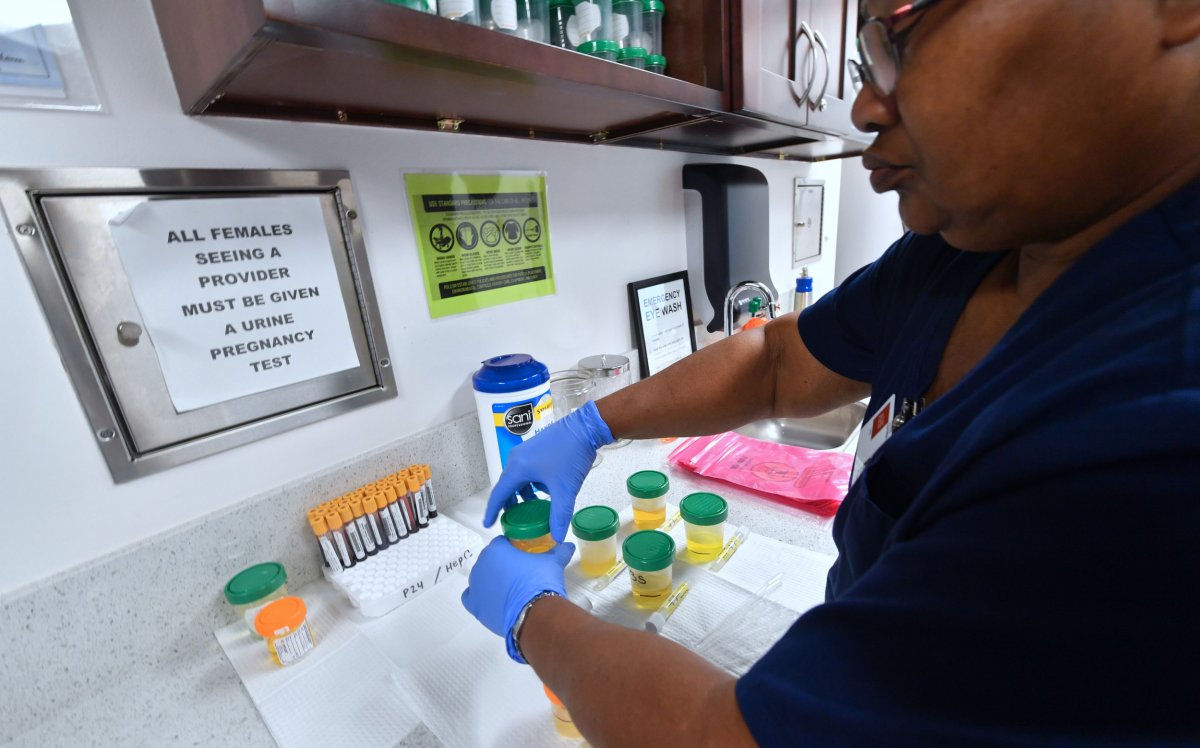Cases of sexually transmitted diseases (STDs) in the U.S. continued to increase at a high rate in 2021 and show "no signs of slowing," the Centers for Disease Control and Prevention (CDC) said when it released new data this month.
Politico, which first reported on the preliminary STD data, said that in 2021, syphilis cases saw their highest annual increase since former President Harry Truman was in the White House decades ago. Truman left office on January 20, 1953.
The U.S. saw an increase of nearly 28 percent of total annual syphilis cases between 2020 and 2021—just over 171,000 people with confirmed infections.
Chlamydia infections increased 3.1 percent in 2021 compared to 2020, with more than 1.6 million cases, and gonorrhea infections saw a rise of 2.8 percent with nearly 700,000 cases.

The U.S. saw 2.5 million cases of the three STDs last year, 4.4 percent more cases than were detected by public health officials in 2020.
The U.S. saw historic lows of gonorrhea cases as recently as 2009, and historic lows of syphilis in 2000 and 2001, according to the CDC.
Jonathan Mermin, the director of the CDC's National Center for HIV, Viral Hepatitis, STD, and TB Prevention, said in a statement in April that the COVID-19 pandemic "put enormous pressure on an already strained public health infrastructure."
"There were moments in 2020 when it felt like the world was standing still, but STDs weren't. The unrelenting momentum of the STD epidemic continued even as STD prevention services were disrupted," he added.
A spokesperson for the CDC told Newsweek on Thursday that the pandemic "increased awareness of something we've long known about STIs – that longstanding and ingrained social, and economic factors must be addressed so that everyone can achieve optimal health."
"There are social & economic conditions that make it more difficult for some populations to stay healthy. For example: poverty, stigma, and lack of medical insurance or a provider, unstable housing, and a higher burden of STIs in some communities," the spokesperson continued.
The CDC spokesperson added that the preliminary data shows that "some racial and ethnic minority groups, gay and bisexual men, and our nation's youth continue to be disproportionately impacted by higher rates of STIs – illustrating a failure to provide access to quality sexual healthcare to everyone who needs it."
"Turning the STI epidemic around is going to require increasing accountability for controlling STIs to partners beyond CDC and health departments; re-envisioning how we provide STI services to people to better meet them where they are; and innovative solutions to bring STI testing, treatment, and prevention into the 21st century," the spokesperson added.
The CDC found in 2017 that chlamydia, gonorrhea and syphilis infections had all increased since 2016.
California's health department noted in 2018 that the number of stillbirths caused by syphilis in the state had spiked to the highest level in more than two decades.
The California Department of Public Health said that in 2017, 300,000 cases of chlamydia, gonorrhea and early syphilis were detected, a 45 percent increase over the previous five years.
"STIs are preventable by consistently using condoms, and many STIs can be cured with antibiotics," Dr. Karen Smith, the director of the department, said at the time. "Regular testing and treatment are very important for people who are sexually active, even for people who have no symptoms. Most people infected with an STI do not know it."
Uncommon Knowledge
Newsweek is committed to challenging conventional wisdom and finding connections in the search for common ground.
Newsweek is committed to challenging conventional wisdom and finding connections in the search for common ground.
About the writer
Xander Landen is a Newsweek weekend reporter. His focus is often U.S. politics, but he frequently covers other issues including ... Read more
To read how Newsweek uses AI as a newsroom tool, Click here.








